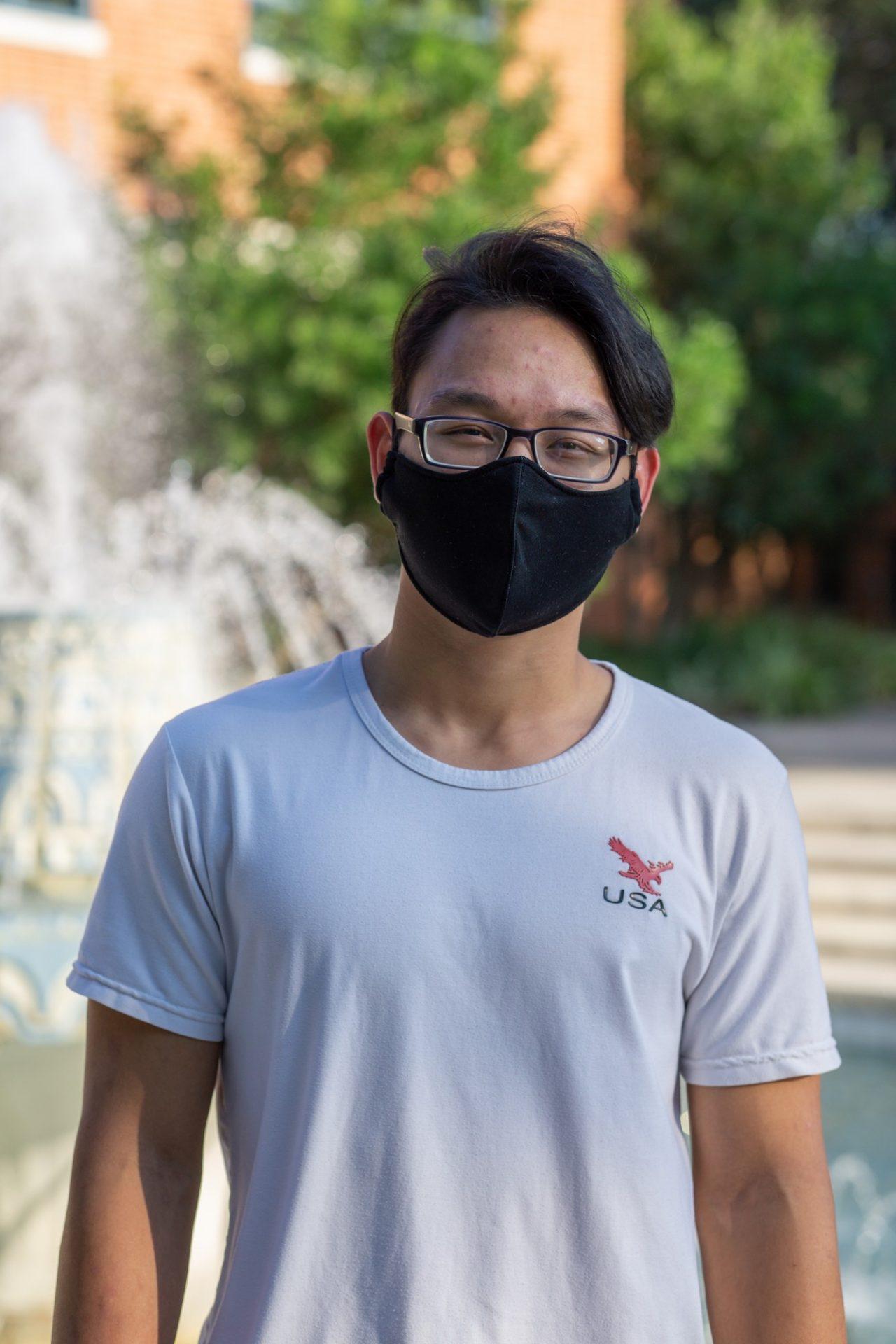Photo by Kate Nuelle
In March, the Immigration and Customs Enforcement agency (ICE) released a policy that would prohibit international students from taking all of their courses online in the United States. International students would only be allowed to take hybrid courses, classes that are both online and in person. Martin Li, a junior from China and employee for the International Student and Scholar Services Office (ISSS department), explained that “after many colleges (including Trinity University) prosecuted this policy, ICE changed the policies as only new international students who are in the U.S. need to take at least one in-person class.” Twenty universities filed lawsuits against ICE to block the new directive. In response, ICE rescinded the new policy, but some international students are still left unsure of what their future will look like. Universities demanded international students to be granted visas that allowed them to reside in the United States regardless of whether or not classes are in-person, hybrid or online. The updated ICE policy will only prohibit new international students from taking classes that are exclusively online.
This new policy puts universities in a position of picking between public safety or the education of foreign students. Isabel Chiriboga, a junior from Quito, Ecuador, said that when she heard about the new ICE policy she “felt an acute pressure in my chest [and] a lump in my throat, and a few tears ran down my eyes. I felt sharp fear, disappointment and shame.” The United States has become home to many international students, so this new initiative felt like a slap in the face. “We, the international student population, were used as a political tool to reinforce an argument of the U.S government. This is how little they think of us,” Chiriboga said. In a moment where ICE holds the fate of these students, universities have the leverage to help international students. Universities not only filed lawsuits against ICE but also can provide tools to help them through difficult situations.
In the spring, after campus closure, Trinity tried to help international students who had to return home with short notice. Li recalled that Trinity provided some financial support for international students who have certain needs (like buying flight tickets back home). Some international students feel that Trinity still has progress to make in terms of helping international students through campus closures. Chiriboga stated that “Trinity’s response to campus closure in the spring was not well-managed.” Travel bans and border restrictions made it difficult for students to go home. The last-minute notice for campus closure placed a large financial burden on students and their families. Chiriboga explained that when traveling home, “[international students] normally have to book flights back to our countries with months of anticipation because prices are crazy. We have to book storage units to leave our furniture and most of our stuff since we can return to our countries with a maximum of two luggage bags.” Thankfully for Chiriboga, there were no travel bans to Ecuador, and her friends were able to help her store her belongings.
As campus closure looms over the heads of students, there are precautions international students feel that the university should take. Chiriboga asserted that “Currently, 95% of Trinity’s international students are not returning to Trinity this semester. However, for the 5% who are returning, the best thing Trinity can do is to guarantee that they will not be kicked out of their on-campus housing and sent back to their countries no matter the condition or escalation of the pandemic.” Guaranteed housing for international students, even when no travel bans are in place, is essential for international students because if they return home, there are numerous barriers to their education. Unreliable internet, time differences, unstable learning environments and unsafe health conditions all make remote learning significantly more difficult for some remote students. Khang Cong, a first-year student from Vietnam, reiterated Chiriboga’s concern about housing, saying that “I hope Trinity could house on-campus international students and provide meals for us.”
International students want safety, security and support from the university. Cong says that “to be honest, I am not largely concerned with taking at least one in-person class; I just really wanted to study on campus so that I can connect with Trinity’s environment.” Currently, no Trinity students face the threat of going home as the campus is still open and conducting in-person lectures. Some professors, like Dr. Judith Norman in the philosophy department, asked students to schedule a one-hour course with them to fulfill ICE’s requirements. Some students, like Li, look hopefully towards the upcoming semester. “For the students on campus, please try to follow the rules, adjust your mindset, and keep safe,” Li said. “I know it is a hard year for everyone, and I believe we can get through this.”







